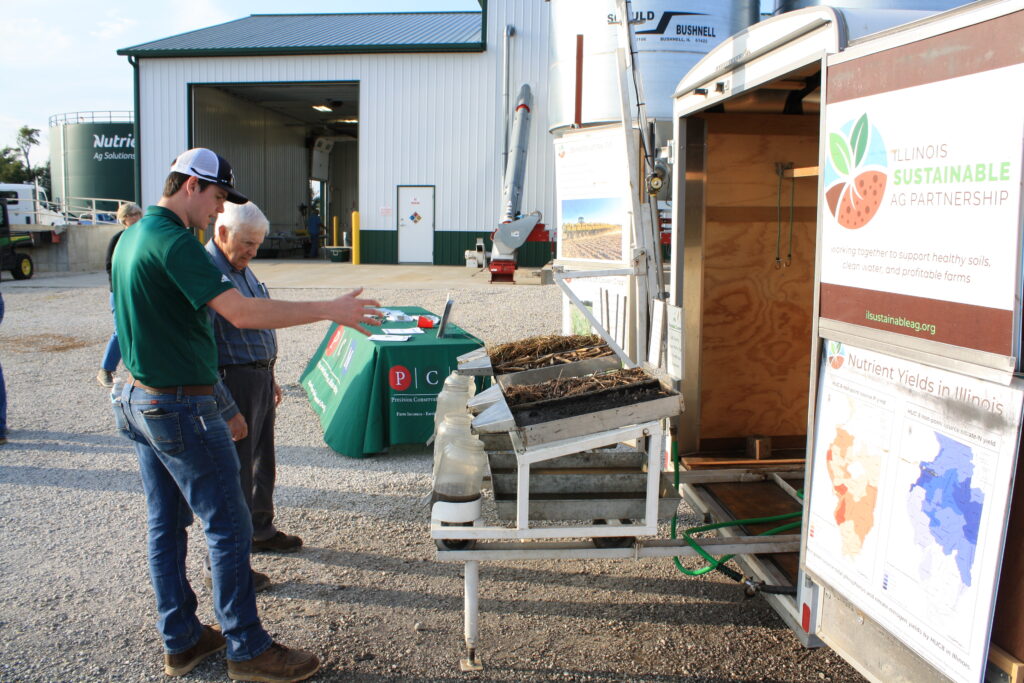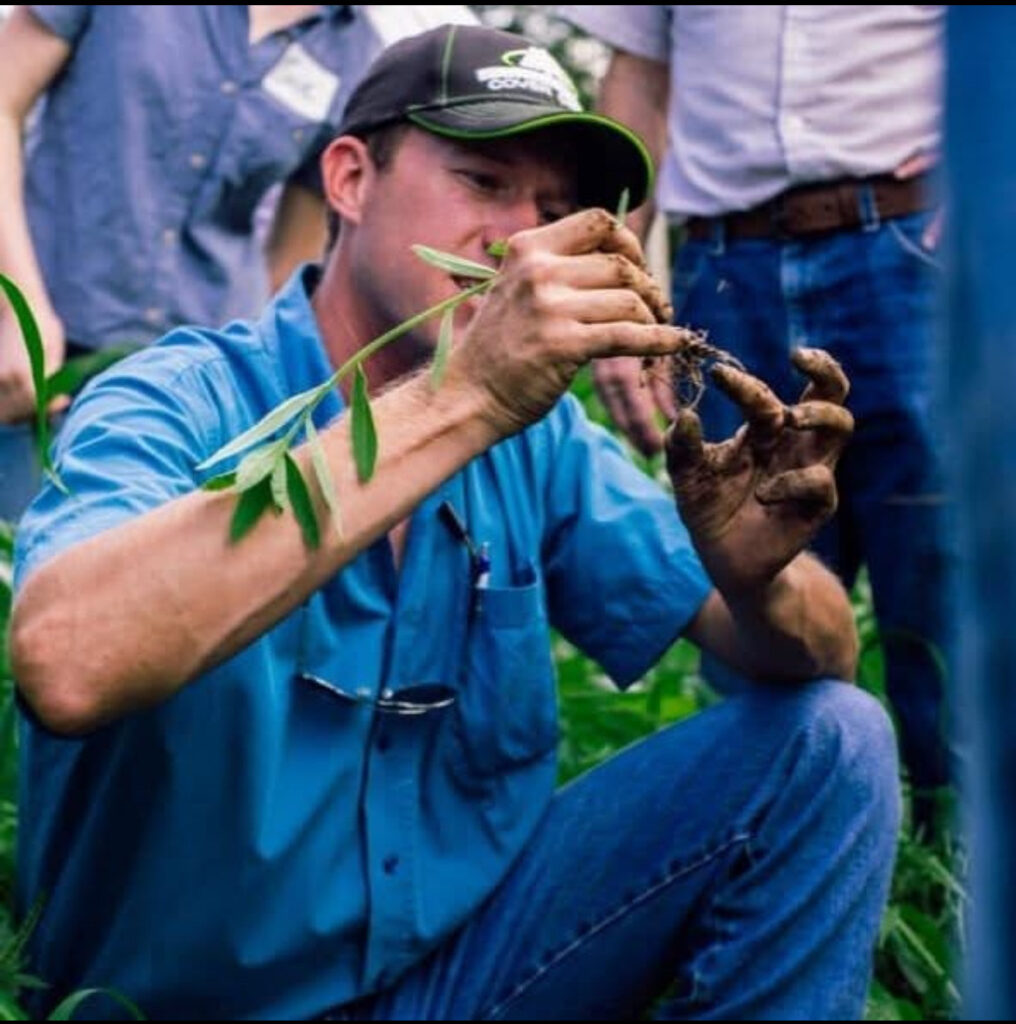Advisors play a pivotal role in helping farmers adopt in-field conservation practices. On July 9, ICCON explored the question, “what makes an advisor truly effective?” The panel discussion brought together three seasoned professionals to share their strategies and experiences.
Meet the Panelists
Aidan Walton – Conservation Specialist, Precision Conservation Management (PCM)
Aidan works with farmers across seven counties in north-central Illinois through PCM, a non-profit farmer service program nestled under IL Corn Growers Association. Aidan helps farmers gather data and evaluate the profitability of conservation systems.

As a young advisor, Aidan Walton shares, “don’t try to stumble through it! Not knowing an answer to a farmer’s question is ok and being honest about that is better than providing an answer you are not confident about.”
Brandon Hall, CCA-IL – Operations Manager/Certified Crop Specialist, West Central FS
Based in west-central Illinois, Brandon advises farmers through a retail agronomy role. With a strong background in soils and a passion for education, he believes deeply in teaching and community involvement.

Brandon Hall shared that he looks for ways to separate himself from the crowd while at the same time not trying too hard to do it. He emphasizes that community involvement is another way to show that he cares about people and it provides opportunity to begin conversations.
David Kleinschmidt – Owner, Progressive Agronomy Consulting Services, LLC
David works as an independent consultant based in Vandalia, Illinois. He brings experience from both ag retail and consulting. In his work, David emphasizes the integration of cover crops, soil function, and fertility management across a broad Midwest client base.

David Kleinschmidt shares that being a trusted advisor requires a share of humility. “Never go out to sell a farmer anything” he says. “Try to deliver solutions.”
Insights from the Advisors
The focus of this panel discussion was on the strategies, challenges, and importance of developing and maintaining relationships with farmers as it relates to the adoption and management of in-field conservation practices. As a trained field agronomist and advisor myself, I know that the first step is establishing and maintaining trust with a farmer. Our panelists all agreed with this sentiment and shared their thoughts and experience with how to maintain a trusting farmer relationship.
As a young advisor, Aidan Walton shares “Don’t try to stumble through it!” Not knowing an answer to a farmer’s question is ok and being honest about that is better than providing an answer you are not confident about. Brandon Hall shared that he looks for ways to separate himself from the crowd while at the same time not trying too hard to do it. He emphasizes that community involvement is another way to show that he cares about people and it provides opportunity to begin conversations. He also brings up the importance of education and the willingness to continually learn. In his words this is known as “sharpening the blade.” It shows those around you that you are always looking to improve and become a better advisor. David Kleinschmidt shares that being a trusted advisor requires a share of humility. “Never go out to sell a farmer anything” he says. “Try to deliver solutions.”
Each panelist went on to share some stories about how their advice and experience has helped farmers make changes and better understand the implications of their management. This storytelling piece is unique, and it provides a glimpse into how our relationships with farms shapes the way farming is approached. As Brandon Hall shared, “These things become emotional to these farmers.” This is why having a trusted relationship and being able to demonstrate your knowledge and understating of the issues is critical before ever suggesting dramatic change. These examples show how conservation practice adoption isn’t just technical—it’s personal.
All three panelists agreed that small steps backed up by data and experience are the best opportunity for seeing increased in-field conservation practice adoption. The elimination of a single tillage pass in a multiple pass status quo system (especially ahead of soybeans) is usually a palatable proposition for many farmers. Bringing a cover crop in ahead of soybeans is becoming more and more popular as well. The panelists emphasized to meet farmers where they are and build from there while understanding that not everyone will have the same tolerance for risk or willingness to try something new.
ICCON would like to extend a big thank you to Aidan Walton, Brandon Hall, and David Kleinschmidt for joining us for this panel discussion. It’s important to remember that it is no easy task for farmer advisors to find a spare hour in July, so thank you very much to our panelists for offering their perspectives on working closely with farmers. Remember to join ICCON again on August 14th when we will feature panelists Krista Kirkham from TNC, Becky Taylor from Livingston County SWCDs, and Dan Schafer from Illinois Fertilizer & Chemical Association. The panelists will highlight some best practices and tips for a good working relationship with cooperating landowners and farmers when doing on-farm research or demonstrations.
The panel discussion can be viewed on ISAP’s YouTube channel. ICCON will meet again on August 14 at 9AM CST. Register today and join us! If you are interested in joining the Illinois Cover Crop On-Farm Network to learn about new research and hear from cover crop specialists across the Midwest, please join our google group by sending an email to hello@ilsustainableag.org.